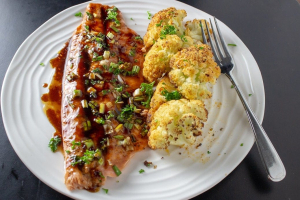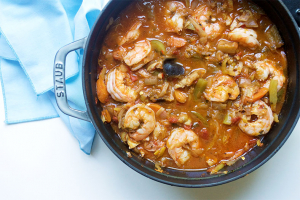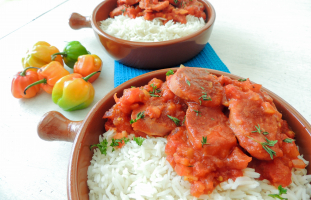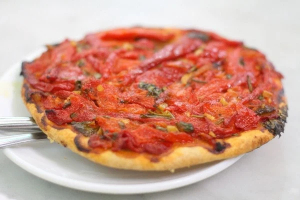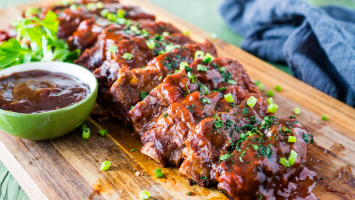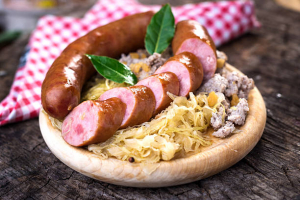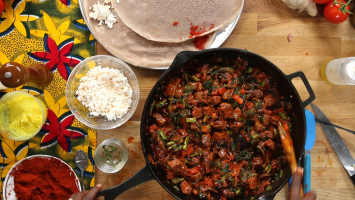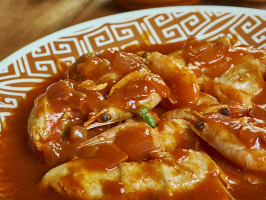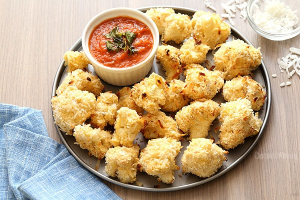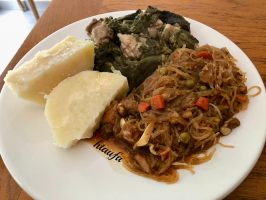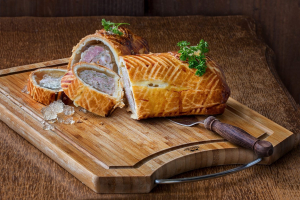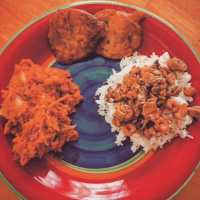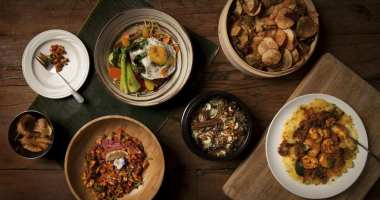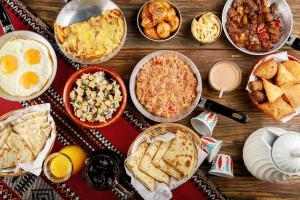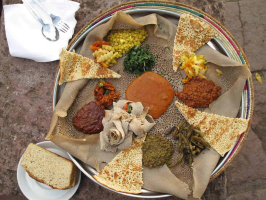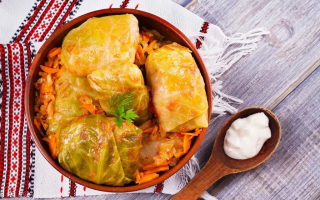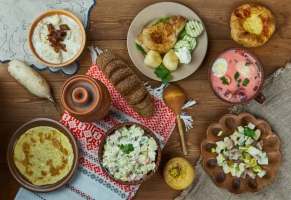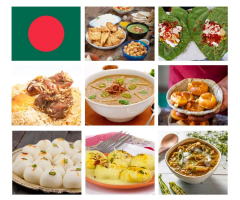Top 5 Best Food In Estonia With Recipe
With hearty staples, tender meats, and plenty of European influence, Estonian food packs so much warmth and comfort in every bite. And it’s no surprise. From ... read more...the fish of the freshwater lakes to the vast fields of rye, so many fresh, quality ingredients make their way into Estonian dishes. Prepare for breathtaking flavors that soothe and comfort the stomach, as a native Estonian guides us through 5 traditional Estonian dishes you simply have to try.
-
Sprats are a tiny oily fish that taste similar to sardines. They are extremely popular in Estonia and are used in a variety of cuisines. Sprats can be found at most local grocery stores and supermarkets. Smoked, tinned, or pickled in a spicy brine are all options. All of them bring distinct, new flavors to the table. A popular Estonian dish is Vürtsikilu Suupiste. It's a filling sandwich that's great as a snack or appetizer. A considerable amount of cream cheese, combined with crushed garlic, is spread on a slice of rye bread. A fillet of pickled sprat is placed on top of the cheese and garlic bed. Finally, boiled egg white, green onion, and dill slices are added to the sandwich.
Ingredients
- Sprat - 500 g, Water - 500 ml, Salt - 5 tbsp, Sugar - 1 tbsp Spices, sauce - 1 tbsp, Chili - 2 PCs, Sunflower oil - 3 tbsp, Black pepper - 1 depot, Lemon juice - 2 tbsp
Directions
- Boil water with salt, sugar, spices and cool completely
- Frozen defrost the shrimp, rinse under cold running water and drain on a sieve that water glass.Fill it with the cooled brine, cover and store in the fridge for a day
- For the marinade, combine the soy sauce, black pepper, sunflower aromatic oil and Chile pepper.
- Pilchards drain in a sieve, so that the brine fully stack
- Cut off the head and remove the insides
- Pour the marinade and clean up for 2-3 hours in the fridge
- Prepared sprat lay out on a plate, garnish with onion rings and drizzle with lemon juice
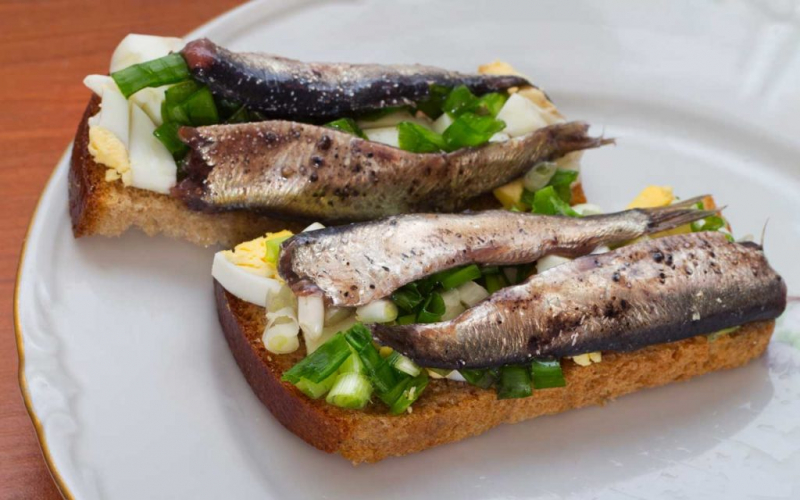
Photo: nomadparadise.com 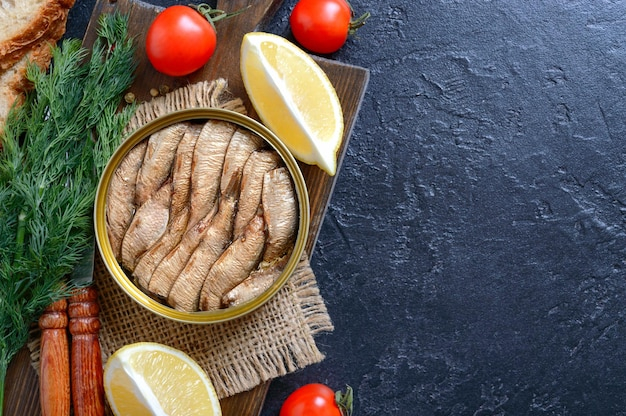
Photo: freepik.com -
Hernesupp Suitsukoodiga is an Estonian soup that is traditionally served on New Year's Eve. Onions, garlic, and smoked pork bones are used to make the broth base. The broth is then poured to the dried peas, which are simmered until tender. The soup is sometimes pureed to give it a creamier texture, while some recipes include carrots. Hernesupp Suitsukoodiga is an acquired taste that is highly popular among Estonians of the older generations. The aromas and flavors of smoked pork transport them back to their childhood.
Ingredients
- 500 g pork, best is (smoked) leg or ribs or pork belly, 0,5 glass of pearl barley, 400 g dried yellow peas, 1 onion, sliced, 2 carrots, sliced, for seasoning salt, mustard, pepper, garlic
Directions
- One day before, put peas and barley to soak in to cold water
- Put all ingredients in to pot and add 3-3,5 litre of water
- Bring to boil and remove the foam
- Decrease heat and let soup to simmer at a low heat min 2 hours
- Season and serve
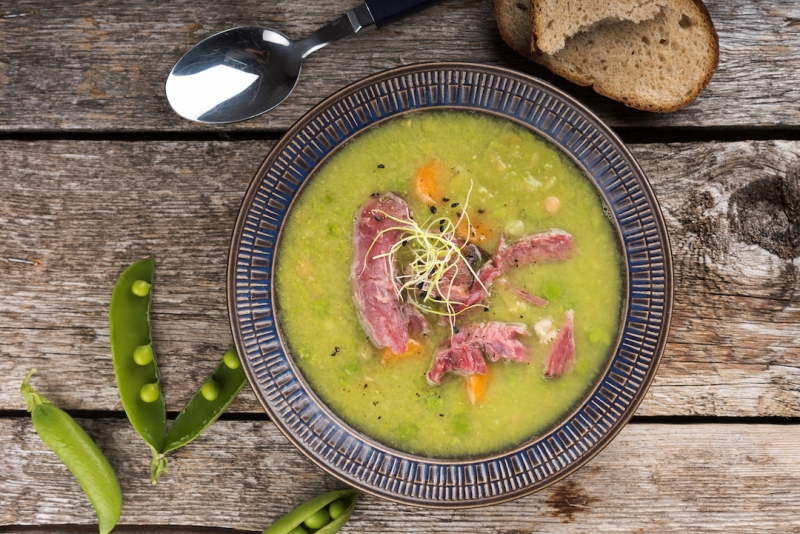
Photo: toidutee.ee 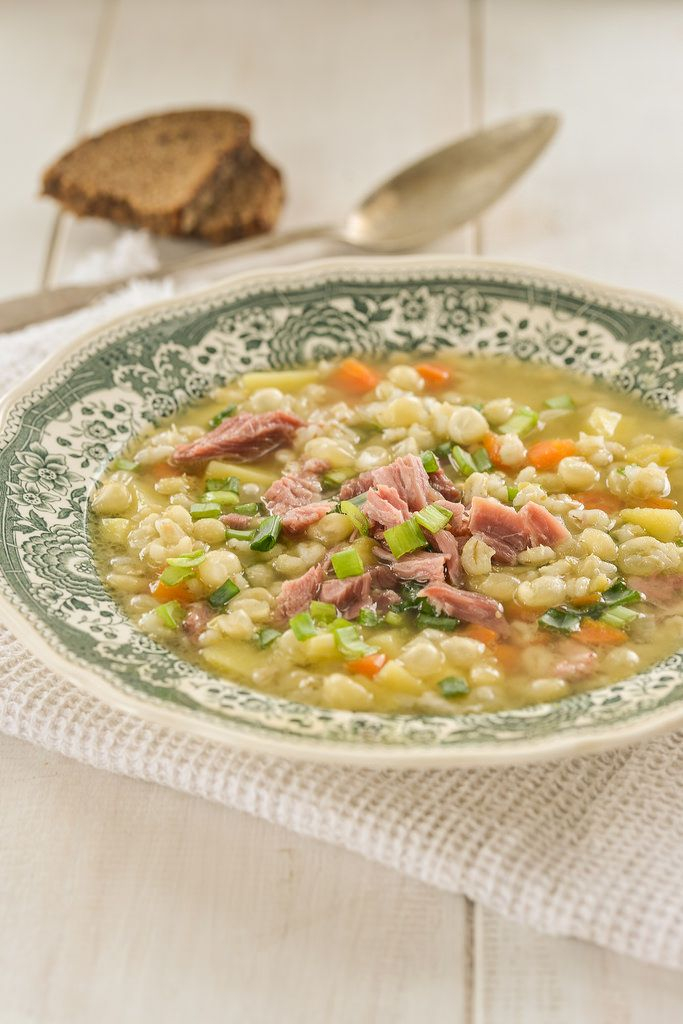
Photo: Pinterest.com -
In most European countries, potato salad is a staple, and each country has its own version. Chopping boiling potatoes and carrots into bite-size pieces is the first step in making potato salad in Estonia. The salad is then topped with a grated boiled egg, cubed cucumbers, and smoked sausage. The components are brought combined with a sour cream and mayonnaise sauce, and canned peas are frequently included. Sliced apple is the final ingredient, which adds a hint of sweetness. Cucumber slices and apple slices assist to provide some sweetness to the savory base. Estonians from all areas of life enjoy this salad. It's a traditional Estonian dish and one of the most popular in the country.
Ingredients
- 6 medium white potatoes or Yukon golds , about 2 1/2 to 3 pounds, skin on and quartered, 3 tablespoons white vinegar, 2 celery stalks (ribs) , diced, 6 green onions , diced, 5 hard boiled eggs , peeled, 1 1/2 cups Miracle Whip or mayonnaise, 1 tablespoon yellow mustard, 1 1/2 teaspoons celery seed, 3/4 teaspoon kosher salt, 3/4 teaspoon freshly ground black pepper, paprika for garnish
Directions
- Add the potatoes to a large pot of cold water and bring to a boil. Reduce the heat to a lightly rolling boil over medium heat and add 1 teaspoon of kosher salt. Cook for 20-25 minutes or until the potatoes are easily pierced with a fork or paring knife. Drain and set aside until cool enough to handle.
- Peel the skins from the potatoes and cut into 1/2" to 3/4" square pieces. Transfer the warm potatoes to a large mixing bowl and sprinkle with the white vinegar. Toss the potatoes with the vinegar and set the potatoes aside to cool, about 15-20 minutes.
- Add the celery and the green onions to the potato mixture. Chop 4 of the hard boiled eggs and add to the potato mixture.
- In a medium bowl, mix the Miracle Whip or mayonnaise, yellow mustard, celery seed and salt and pepper. Fold into the potato mixture and season with more salt and pepper to taste. Slice the last egg into thin slices and place the slices on top of the salad. Sprinkle with paprika if desired. Chill for at least 1 hour or overnight before serving.
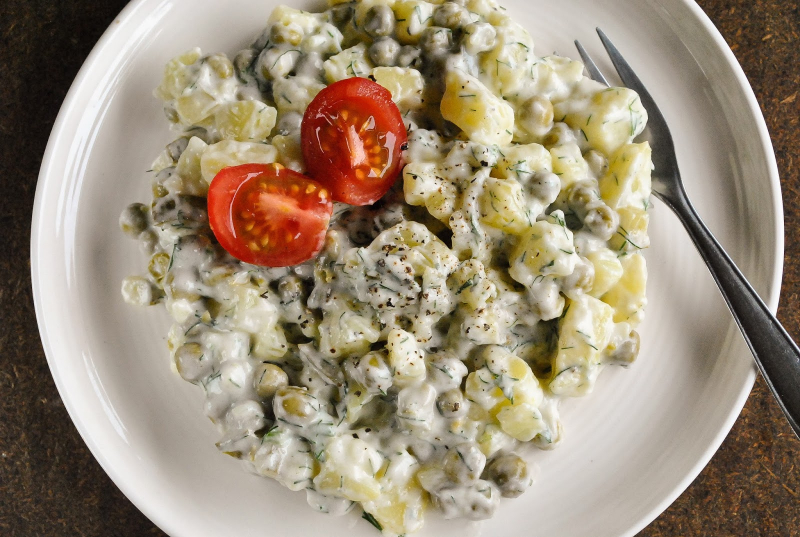
Photo: vegansandra.com 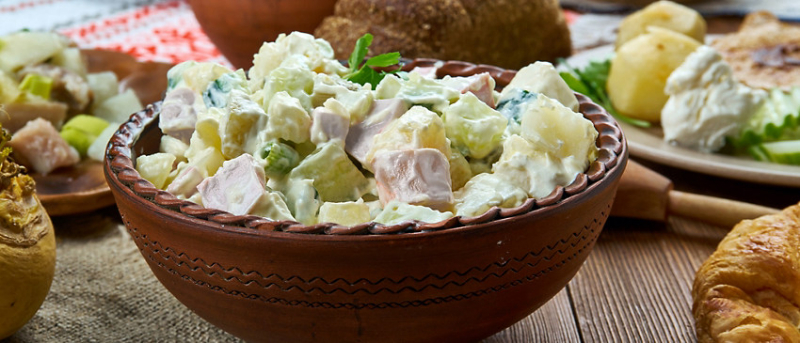
Photo: gct.com -
Sült is yet another inventive Estonian cuisine. It's made by boiling animal bones and then letting the mixture cool until natural gelatin forms and congeals the broth. Aromatics, as well as meat chunks and vegetable slices, are added to the soup. The mixture is then allowed to cool, at which point it begins to form a jelly. Meat jelly (also known as aspic) is a Slavic delicacy that can be found in the cuisines of many countries. It's traditionally offered at Christmas or Easter in Estonia. Sült is best served with a dollop of horseradish and a dollop of sour cream.
Ingredients
- 3 medium to large pieces of cut up ox feet or hooves (or equivalent amount of other meat discussed above), 1-1/5 lbs of moderately fatty (or not fatty) beef chunks, 4 L of cold water/or however much your slow cooker takes, 4-5 cloves of garlic, 1 bay leaf, 2 TBSP salt, 1 tsp ground black pepper
Directions
- Leave the meat to soak in a large pot overnight. In the morning, take it out, wash everything. Clean the pig’s hooves well so that no hair remains. Peel the yellow skin off the chicken legs.
- In a large pot, add the pigs legs and chicken drum sticks. Add enough water to cover all of the meat. Set over high heat, cover, and bring to a boil.
- When the water has come to a boil, drain the water and wash the meat well. Then pour clean water (5-6 liters) over the meat and put on the heat. Don’t add too much water or it won’t become “gelatiney” enough.
- When the water has boiled, add 1 tablespoon of salt and reduce the heat to a light rolling simmer, not boiling, for 4 hours.
- Then, add the carrot and onion and cook for another hour. Taste and add salt if necessary. It should look like a nice chicken broth. Now, it’s important that you do not discard the broth and do not add more water to the pot! Remove the drumsticks and carrots from the broth and set aside to cool.
- Discard the pigs legs, onion, and bay leaves. Use a fine mesh sieve with 3 bounty paper towels over it and filter the broth. This will leave you with a clean broth. Peel and press 4 garlic cloves into the broth and check to see if more salt is needed.
- Remove the meat from the broth and, once it has cooled, take the meat off the bones. Properly cooked, the pork and beef should easily fall off the bone. Remove the skin from the meat. Cut the meat into pieces and arrange it on plates.
- Cut the boiled carrots into rings 0.5 cm thick.
- Put a layer of pork into a deep dish or other receptacle with high sides, then spread around the carrot rings. Pour in enough of the hot strained broth to cover the meat and a little extra over the top. Refrigerate 3 hours or overnight, or until firm.
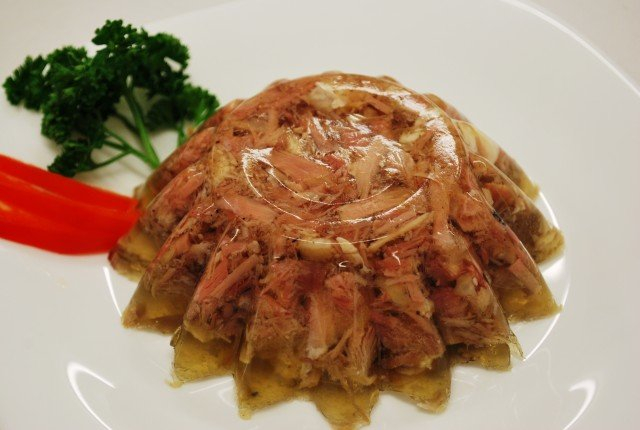
Photo: estonianworld.com 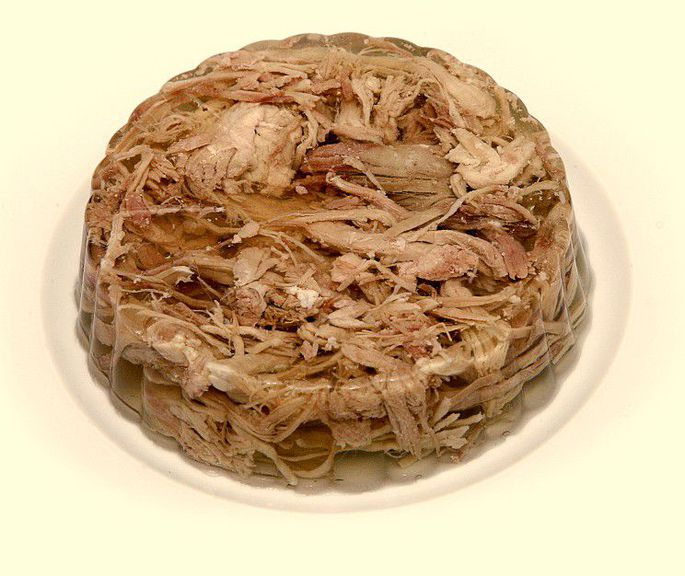
Photo: naine.postimees.ee -
During the USSR's control, rosolje (mixed beetroot salad) became a mainstay of Estonian cuisine. Many Estonian celebrations include it. It's a simple dish that incorporates two Estonian staples: herring and beets. Dressed herring, on the other hand, is a layered salad made out of grated vegetables and diced pickled herring, whereas rosolje is a much simpler salad. All of the ingredients for rosolje are combined in the same bowl. This offers it a variety of flavors and textures. Rosolje is a simple dish to prepare. Cubed pickled herring, pickled cucumbers, boiled potatoes, beets, carrots, and eggs are all served with mayonnaise. It's that easy to prepare, and it's full of taste. The colors are very lovely to look at.
Ingredients
- 2 Pounds Small Beets (I Used a Mix Of Golden And Red Beets, But All Red Beets Would Be Just Fine), 1/2 Cup Finely Diced Red Onion Or Chopped Green Onions, 1/4 Cup Extra Virgin Olive Oil, 3 Tablespoons White Balsamic Vinegar, 1/2 Teaspoon Dijon Mustard, 1/2 Teaspoon Honey, 1/4 Cup Chopped Fresh Mint Or Parsley, Sea Salt & Cracked Black Pepper
Directions
- Preheat the oven to 400 degrees F.
- Place the beets in a large casserole dish and either cover with a lid or with aluminum foil.
- Roast the beets until fork tender, about 1 1/2 hours.
- Allow to cool.
- Peel the beets and cut into 1/2 inch cubes.
- Place the beets in a bowl.
- Mix together the remaining ingredients and then pour these over the beets.
- Toss to coat evenly and serve.
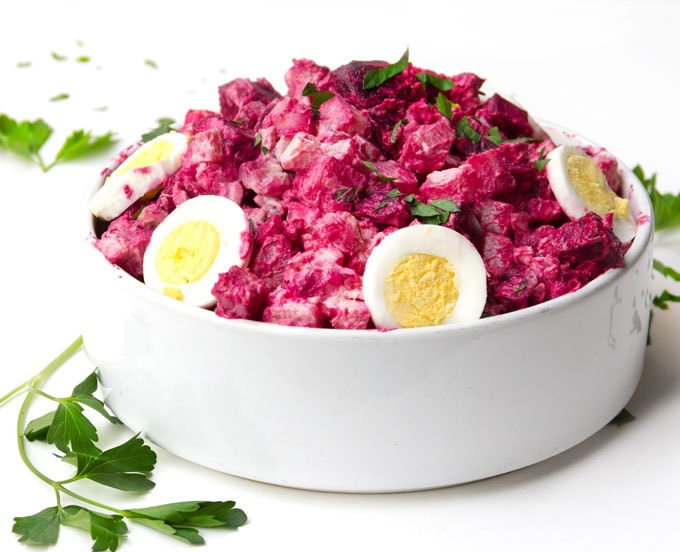
Photo: panningtheglobe.com 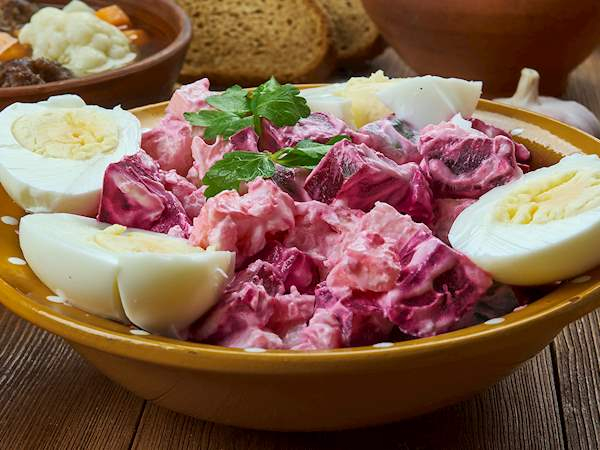
Photo: tasteatlas.com







